Why use Node.js? 9 examples of successful Node.js apps'
Why use Node.js? Let the examples of Node.js apps speak for themselves: discover Uber, Figma, SpaceX, Slack, Netflix and more!
Małgorzata Galińska
Mar 21, 2021 | 14 min read
Ahh, Node.js. The more I read about it, the more I get excited about this piece of technology, and the different types of software that people build with it. It’s the core technology (along with React) that MasterBorn developers use, and we strive to achieve an absolute grandmaster level when it comes to Node programming.
Node.js was created by Ryan Dahl, a software engineer who was tired of Apache HTTP server’s limitations. Ryan announced Node to the public at a JS conference in 2009, and he probably wasn’t expecting it to become one of the main driving forces behind the evolution of digital technology.
On the web alone, the impact of Node.js is illustrated by its market position - it’s used on less websites than Apache, Nginx, but it’s by far the most popular option for websites that have the most traffic.
And that’s just the web. Node.js can be used to build desktop apps, mobile apps, or manage a swarm of IoT devices.
What makes Node.js so useful, when should(n’t) you use it, and which companies are Node.js-powered? Read on to find out.
What is Node.js?
Let’s start from the basics: Node.js is an open source technology that combines the power of Chrome’s V8 JavaScript engine with low-level system functions like network and file operations. Using Node.js, developers can build JavaScript applications outside of the web browser.
It may not sound revolutionary now, but back in 2009 this was a huge step forward. Before that, the only place that you could run JavaScript programs was the browser. It was one of the big limitations that kept JavaScript from evolving, and limited it to being a language for front-end interactions in the browser.
With Node.js, this problem was eliminated, and you could run JS programs anywhere. You could finally use JavaScript for both client and server.
Two big things (and many smaller ones) happened after that:
-
JS exploded in popularity as developers started using it to build full applications
-
the web finally became a true medium of real-time, two-way communication
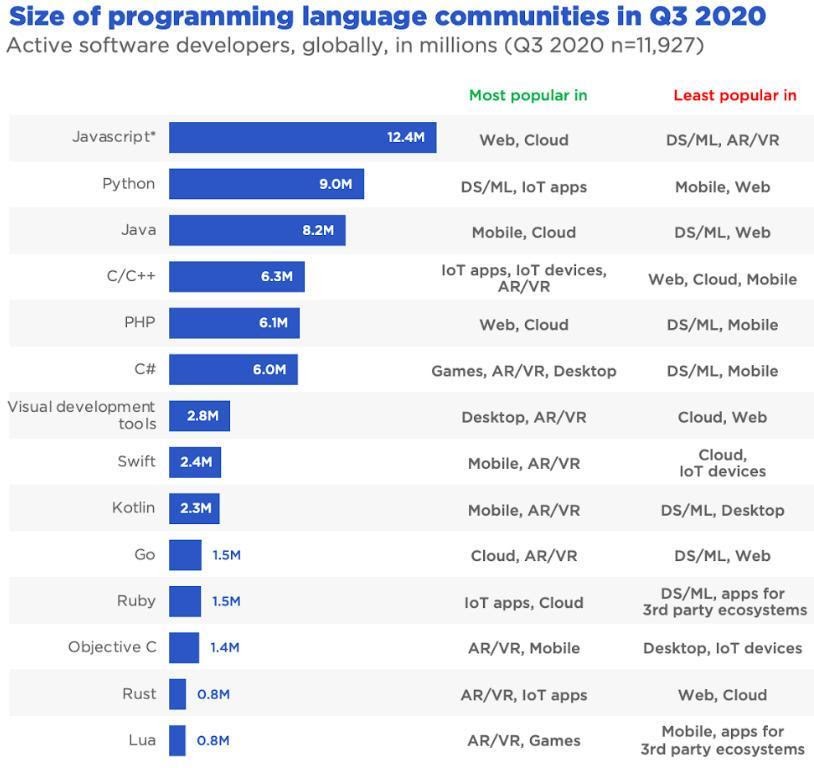
Popularity of programming languages. Source: zdnet.com
What is Node.js used for?
The absolute best use case for Node.js is scalable network applications that need to handle large amounts of concurrent connections without choking. Node can be applied in a plethora of different mobile, desktop, web, and IoT projects.
However, it can’t do everything. It’s not awesome for CPU-intensive applications, so if your software needs to calculate and transform a lot of data (for example video processing), then you need to add another technology to your tech stack to take care of it. But, the JS ecosystem is evolving quickly, so this is changing too. There’s already Tensorflow.js which lets you build machine learning models with JavaScript in Node.js.
Apart from that, you don’t see many games, VR/AR applications, or enterprise applications built with Node. This can be for a variety of reasons. For one thing, developers might prefer using other tools that they’re familiar with.
And how about... space exploration? Can Node.js help in conquering space? Yes, yes - actually it can.
SpaceX used JavaScript and Node.js in Dragon Flight
Node.js made its way into space as the technology for displaying data on screens in SpaceX’s Dragon spacecraft. So we can confidently say that it’s space-ready! Plus, the official Node.js blog states that Node can be used for all kinds of applications, and it “empowers everyone from hobbyists to the largest enterprise teams to bring their dreams to life faster than ever before.”

SpaceX Dragon capsule interface. Source: Twitter
Why use Node.js? 9 examples of successful Node.js apps
Now that we know what Node.js is and when to use it, it’s time to see how it works in real-world scenarios.
So, in this section you’re going to see 9 companies that use Node.js to drive their software. Just remember - these apps aren’t built only with JavaScript and Node.js. Depending on the company and its developers, Node.js can be used in a variety of ways. In big projects, it’s often accompanied by a variety of other technologies.
If you’re still wondering “why use Node.js?”, below is your answer. Since the likes of Netflix, Uber and Twitter use it, there must be something to it!
From SpaceX to Netflix: 9 examples of Node.js apps
1. Coursera uses Node.js

-
Founded in 2012 by Stanford professors Andrew Ng and Daphne Koller
-
Key facts: 70 million learners, 200 partners
-
Total funding: $443.1 million
-
Estimated value: over $1 billion (as of 2019)
Coursera is an absolute behemoth when it comes to massive open online courses (mooc). It enables everyone to take courses from the world’s top universities, which is particularly useful for people in low-income communities.
In 2019, the global education tech market was valued at $76.4 billion, and there’s still a lot of room for growth. Coursera will eat up a big part of this growth. They partner with universities, companies, and nonprofits. All the while providing access to over 3,800 courses to individuals around the globe.
Coursera is just the right combination of large amounts of content, video streaming and huge user traffic, making it a perfect application for Node.js.
2. Figma uses Node.js
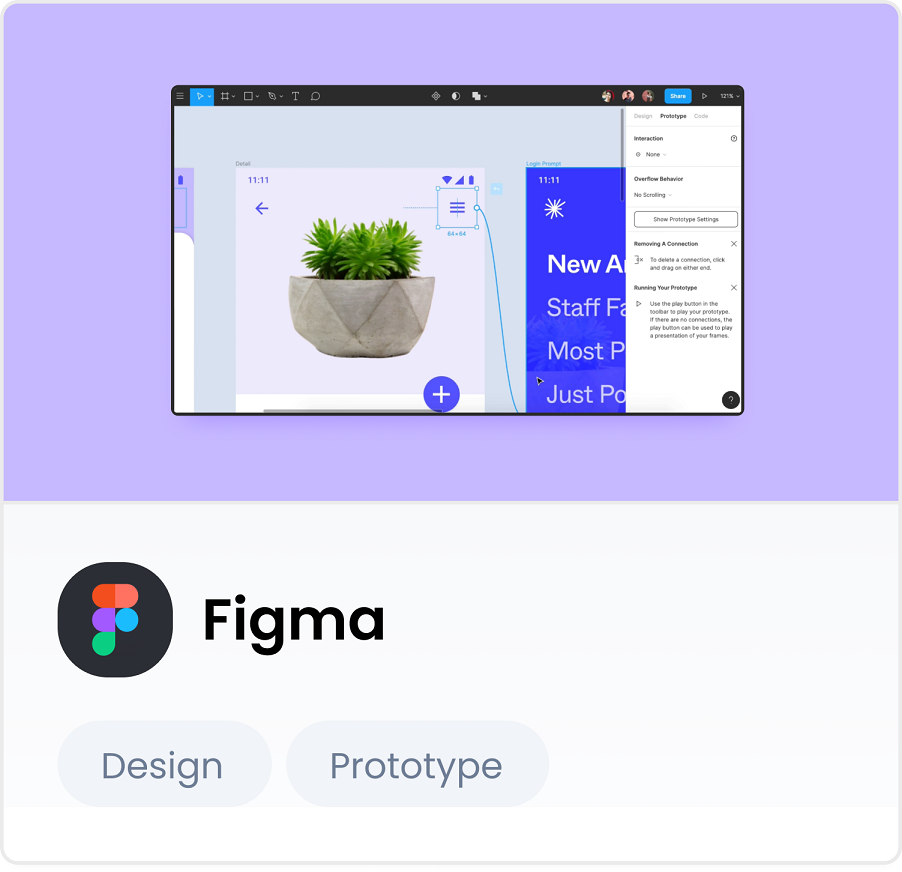
-
Founded in 2012 by Dylan Field and Evan Wallace
-
Key facts: 1 million sign-ups (as of 2019)
-
Total funding: $132.9 million
-
Estimated value: over $1 billion (as of 2020)
Figma is an extremely useful tool for UI/UX design and prototyping. Ever since our Product Design team first used it, they've been in awe of how simple it is to collaborate on designs, even if you’re not a designer yourself (I can attest to that!).
Dylan Field was only 21 when he started Figma, and he started out by taking on the design giant, Adobe. He wanted design tools to be as useful as Google Docs. Right now, Figma is THE design suite if you want unparalleled collaboration in an extremely powerful application.
Figma uses Electron, which is a framework that allows you to build cross-platform desktop apps using Node.js.
3. Uber uses Node.js

-
Founded in 2009 by Garrett Camp and Travis Kalanick
-
Key facts: 100 million active users and 1.5 billion rides on average per quarter
-
Total funding: $25.2 billion
-
Market value: $78 billion
You know it, you use it, in fact pretty much everybody uses it. Uber has absolutely dominated the car-sharing market.
But boy, oh boy, did they have to go through some tough times. And they still are! Their business model was so innovative that the world’s governments are still catching up to it. From drivers committing crimes, through accusations of unethical advertisements, fighting against traditional taxi companies, all the way to battling local governments about how Uber should operate - there are a lot of skeleton’s in Uber’s closet.
Only recently, the British court decided that Uber drivers are workers - not contractors - and they should have better work conditions. In 2020, they had the same battle in California, which was ultimately resolved by returning Uber drivers to contractor status.
So uh, yeah, business-wise, Uber is not all disruption and easy rides. Technology-wise? It’s pretty cool. Uber’s core was built using Node.js.
4. Netflix uses Node.js

-
Founded in 1997 by Marc Randolph and Reed Hastings
-
Key facts: 203 million paying subscribers, $17.3 billion spent on video content in 2020
-
Total funding: $3.1 billion
-
Market value: $240.215 billion
You know what Netflix is, so there’s no point explaining it. They changed the way we consume movies and tv series, and they only keep growing. Netflix spends $150 million per year just on improving their recommendation system, and they spent $1.5 billion in 2019 alone on research and development.
Perhaps not everyone knows that Netflix is over 20 years old, and they started out with basically an online shop where you could rent DVDs and have them shipped to you. They launched online video streaming way back in 2007, and they’re still the biggest player on the market.
Since 2016, Netflix has been spending about $9.7 million on AWS per month, after a 7-year long migration to AWS from their old infrastructure.
When it comes to streaming large amounts of content to millions of users around the world, Node.js has no competition, so this is a great Node.js example showing how this technology drives disruption, business growth, and user satisfaction.
Stay updated
Get informed about the most interesting MasterBorn news.
5. Twitter uses Node.js

-
Founded in 2006 by Biz Stone, Evan Williams, Jack Dorsey, and Noah Glass
-
Key facts: 330 million monthly active users, 500 million tweets sent each day
-
Total funding: $1.5 billion
-
Market value: $61.65 billion
It was first built using Ruby on Rails, but in 2017 Twitter developers moved all of it’s traffic to a new Node.js - based tech stack. Their most recent troubles are caused by politicians who abuse the platform (among all other social media platforms) in order to boost their own interests in unethical ways. Over the years, they’ve jumped several other hurdles, but they always pull through. They don’t have the largest amount of users, but Twitter is definitely the most opinion-forming platform.
Ever since Twitter devs started using Node.js, they’ve been happy with the development speed it offers, and applied it anywhere it was possible.
6. Slack uses Node.js
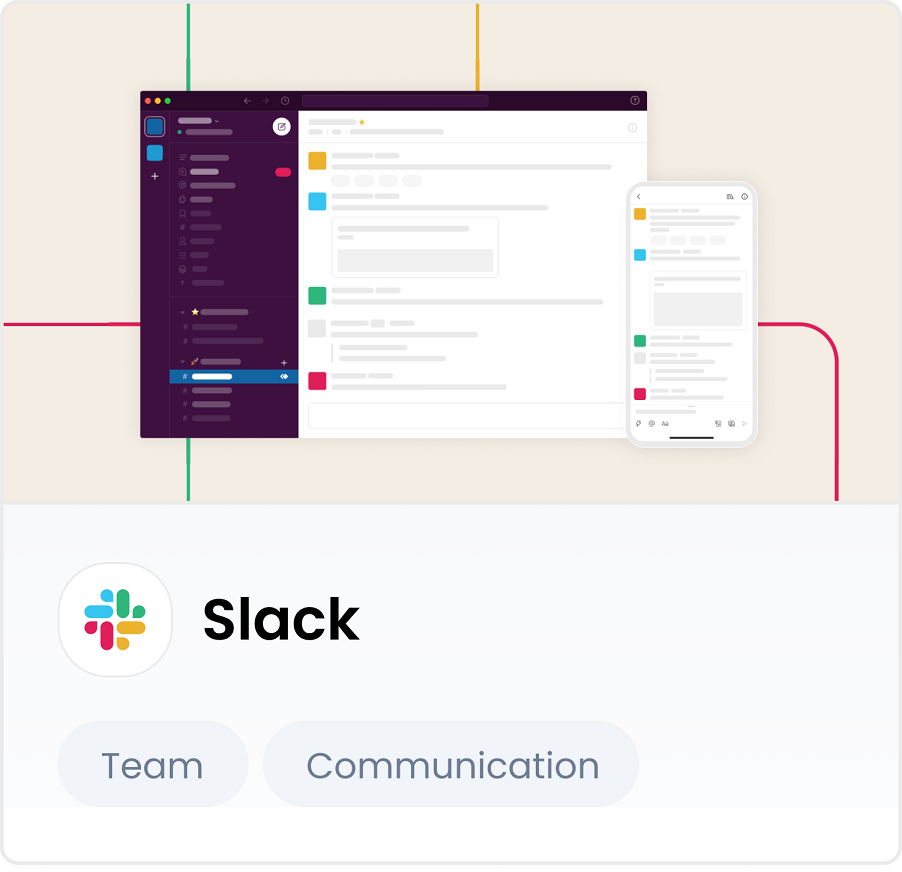
-
Founded in 2009 by Cal Henderson, Eric Costello, Serguei Mourachov, and Stewart Butterfield
-
Key facts: 12 million daily active users (2019), 6 million paid users, 750,000 organizations use it
-
Total funding: $1.4 billion
-
Market value: $24.37 billion
If you’ve been working at tech or digital companies for several years, there’s no way you haven’t used Slack, and Slack uses Node.js in their desktop app.
In 2020, Slack filed a lawsuit against Microsoft in the EU, stating that Microsoft abused their position by force-installing Teams, their Slack alternative, for all clients that use Microsoft Office.
Also in 2020, Slack was bought by Salesforce for $27.7 billion. Before that, in 2016, Microsoft actually thought about buying Slack, but it didn’t go through. Slack acted a bit cocky, even buying full-page ads welcoming the competing Microsoft Teams, which was released soon after the Microsoft + Slack acquisition didn’t go through.
At the moment, Teams has 10 times more users than Slack, which is a good demonstration of how big tech can dominate start-ups using their own ideas. But with Salesforce behind them, Slack isn’t going anywhere, and its popularity only keeps growing.
7. UpWork uses Node.js

-
Founded in 1999 by Odysseas Tsatalos
-
Key facts: there are 18 million freelancers on UpWork, earning over $1 billion every year from 5 million registered customers
-
Total funding: $168.8 million
-
Market value: $6.43 billion
UpWork is one of the biggest players in the freelancing market, providing freelancers and their customers with a safe platform to cooperate. At the core of UpWork’s tech stack there is a Node.js server.
In the fourth quarter of 2020, UpWork achieved their highest year-to-year growth rate since going public in 2018. Although market analysts fear that UpWork is overvalued, and that competitors might out-grow it, the company has been around since 1999 and it’s a staple of the gig economy. It’s unlikely that this will change in the nearest future.
8. Revolut uses Node.js

-
Founded in 2014 by Nikolay Storonsky and Vlad Yatsenko
-
Key facts: 1.9 million monthly active users, $5.5 billion in monthly transaction volume (2019), 15 million customers around the world
-
Total funding: $905.5 million
-
Estimated value: $5.5 billion
Revolut is kind of like PayPal on steroids. At this point, it’s more of a bank than just a payment provider - even though they’re still in the process of acquiring a bank charter to become a legitimate bank. They already provide debit cards for clients.
It uses Nginx for the server, but Revolut developers use Gatsby and React in their stack (Gatsby is a framework based on Node).
Revolut is one of the prime FinTech players that might just revolutionize the way we handle money.
9. Asana uses Node.js
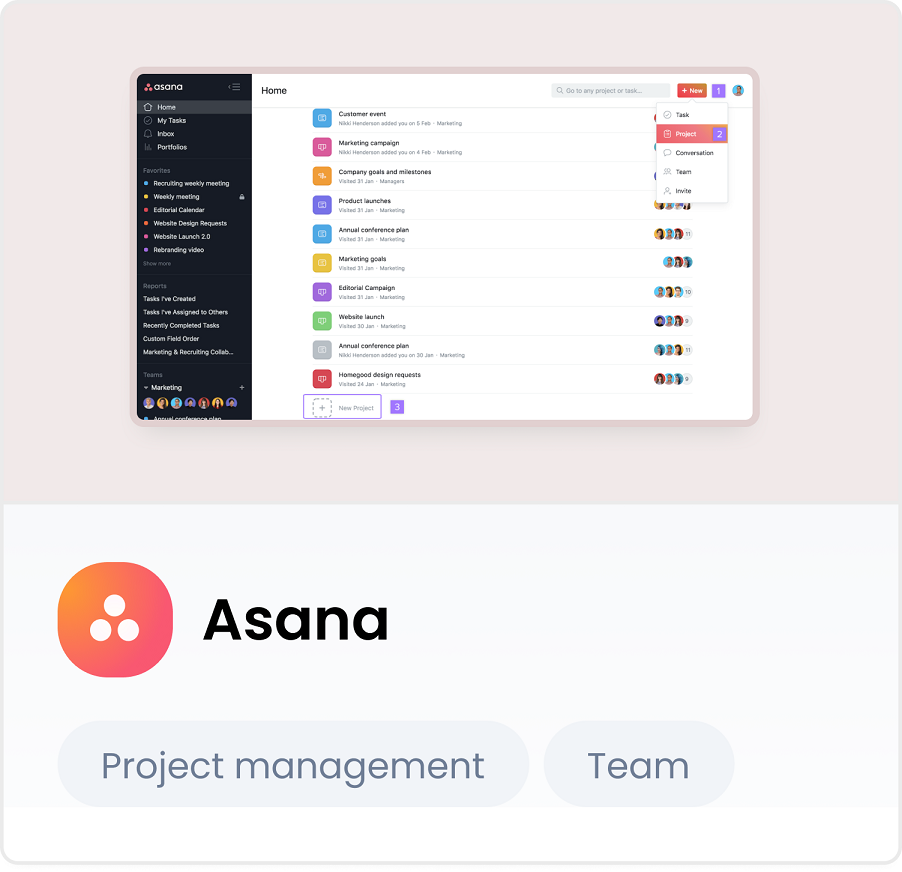
-
Founded in 2008 by Dustin Moskovitz and Justin Rosenstein
-
Key facts: 1.3 million paid users, $142.6 revenue in 2020
-
Total funding: $453.2 million
-
Market value: $4 billion
The premium project management software. Asana was founded by Facebook co-founder, Moskovitz, and his fellow FB team member, Rosenstein, and it took them four years to release their product commercially.
It started because they both noticed that when Facebook was growing at a break-neck pace, project management became really difficult to manage and track. Now, anyone can apply what they learned from that period by using their software.
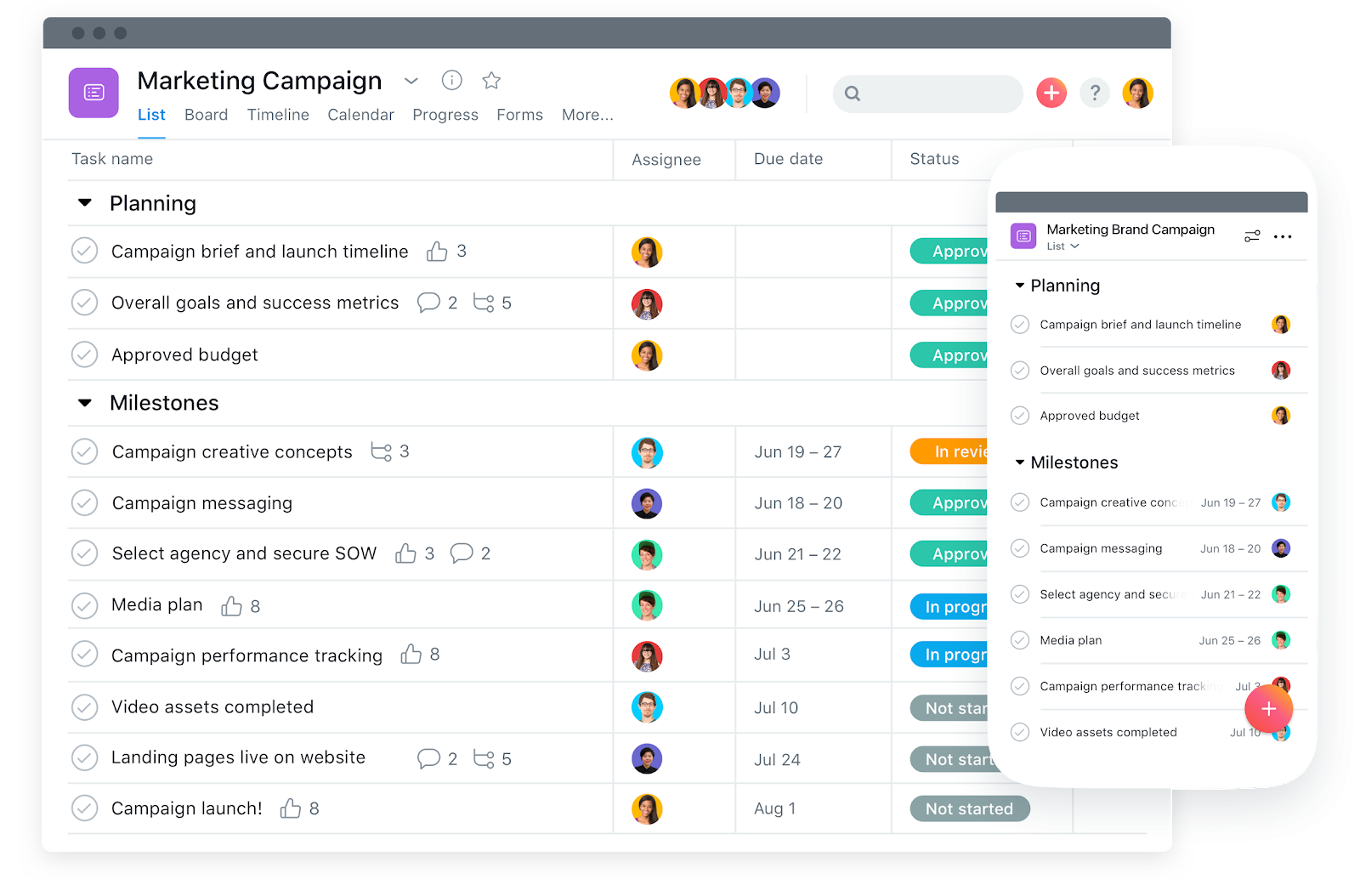
Asana uses Next.js (a Node.js-based framework) along with Node.js in their tech stack.
12 more companies that use Node.js - quick rundown
Just to show how prevalent it is, here are 12 more examples of companies using Node.js for application development, without going too much into detail about them.
News organizations:
-
BBC
-
Washington Post
-
New York Times
Tech companies:
-
Spotify, the audio streaming giant
-
Medium, the blogging platform open to everyone
-
Speedtest, where you can test internet speeds
-
GoDaddy, the largest hosting provider
Developer tools:
-
Express, one of the most powerful server-side JavaScript frameworks
-
Gatsby, a static site generator that changed the game for many JS developers
-
Meteor, full-stack JS framework for building robust software
-
Next, a Node + React framework for building powerful web applications
-
Strapi, a powerful headless CMS
There’s a lot more, but I think these examples are enough to show just how prevalent Node.js is in the online services we use every day. It seems that wherever you look, there's a Node.js app waiting for you.
Is Node.js a good choice for your project?
I’d say yes. And I could end it there, but let me add a bit of rationale.
It’s stable, it’s super fast, and it easily scales up as much as you need it to - in terms of the number of users, as well as app performance. In web development, mobile development, desktop development and IoT development, for high-traffic, real-time applications like a single page application, mobile app, cross-platform app - Node is a great choice.
When used properly, Node offers improved performance over competing technologies, along with great user experience.
What are the benefits of Node.js?
Because it enables developers to use JavaScript both on the back end and the front end, it makes the development process faster and easier to manage. Plus, it might be easier to find developers compared to other technologies. There are over 12.4 million active JS developers, which makes it the most popular language with 3 million more developers than the second runner up, Python.
So, yeah! It’s highly probable that Node.js is a good choice for your project.

Summary
Hopefully, I was able to explain exactly what Node.js is, and when it’s worth using it in your start-up and project. If all of the above companies use it, I think it’s definitive proof that it’s a universal, powerful technology that can drive all types of projects.
But remember that Node doesn’t do anything by itself. You need world class Node.js experts and UX/UI designers to take advantage of this technology at its full potential. Just like in F1 racing, a bad driver won’t win even driving the best machine.
If you need bespoke software development, and you’re looking for top JavaScript developers - look no further. We know how to use Node.js to build powerful software. Tell me about your project and I’ll tell you how we can help: hello@masterborn.com
Table of Content
- What is Node.js?
- What is Node.js used for?
- SpaceX used JavaScript and Node.js in Dragon Flight
- Why use Node.js? 9 examples of successful Node.js apps
- From SpaceX to Netflix: 9 examples of Node.js apps
- 1. Coursera uses Node.js
- 2. Figma uses Node.js
- 3. Uber uses Node.js
- 4. Netflix uses Node.js
- 5. Twitter uses Node.js
- 6. Slack uses Node.js
- 7. UpWork uses Node.js
- 8. Revolut uses Node.js
- 9. Asana uses Node.js
- 12 more companies that use Node.js - quick rundown
- Is Node.js a good choice for your project?
- What are the benefits of Node.js?
- Summary
World-class React & Node.js experts
Related articles:
Why Startups Choose Node.js? Because Loving Node.js is so Easy!
Why both unicorns and bootstrapped startups are choosing Node.js to develop their MVP? Well, sometimes you meet someone, and it just clicks…
React and Redux - 10 examples of successful Web App Development
Almost half of React apps use Redux today. The question is - why is Redux gaining so much steam? And, is React becoming more popular thanks to Redux?
Jak NIE budować MVP - 6 porad dla CEO i Founderów
W MasterBorn ulepszanie procesu tworzenia oprogramowania stało się naszą firmową “obsesją”. W przypadku większości firm i zespołów proces ten zaczyna się od utworzenia i zdefiniowania MVP. W tym artykule chciałbym się podzielić spostrzeżeniami i najlepszymi praktykami, których nauczyliśmy się tworząc MVP dla naszych amerykańskich Klientów.